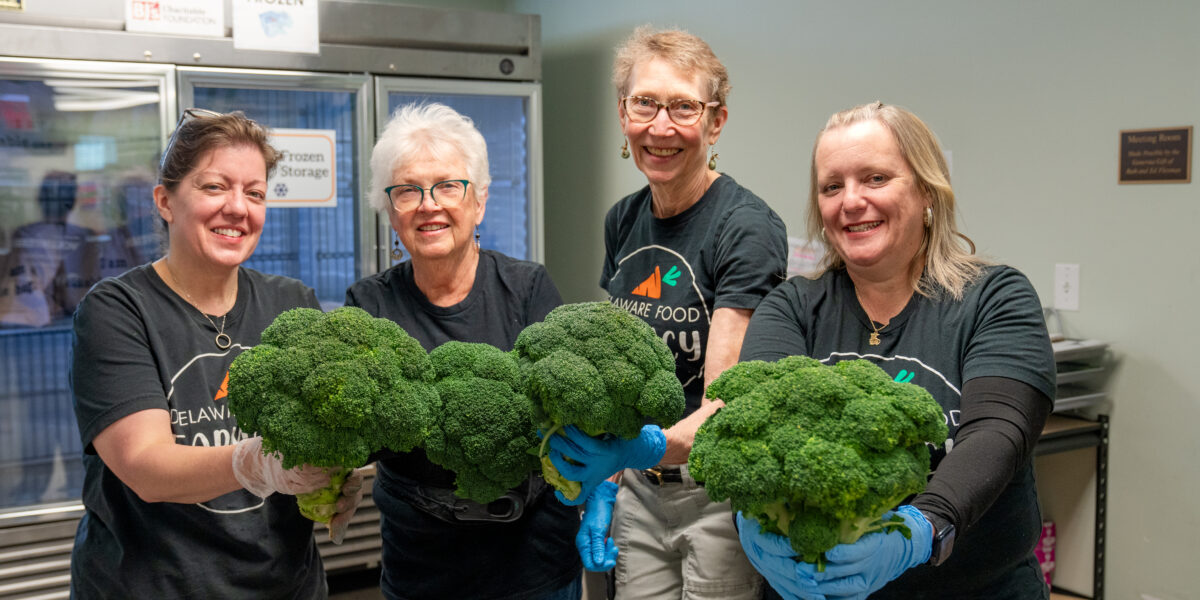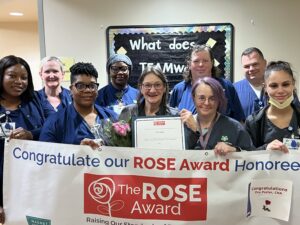On Monday mornings, Lutheran Community Services (LCS) food distribution coordinator Jennifer Williams works with a team of volunteers to pack a week’s produce, meat and other essentials for Delaware Food Farmacy participants. With the entire family receiving enough food for 10 meals each week, LCS has provided over 100,000 healthy meals since the program started.
The team sails through the orders, divvying up enormous heads of broccoli, selecting locally butchered meats and grabbing whole grains from the LCS pantry in Wilmington, Delaware. For volunteers like Joe Pasquarella, it’s a way to reinforce his own love of healthy eating.
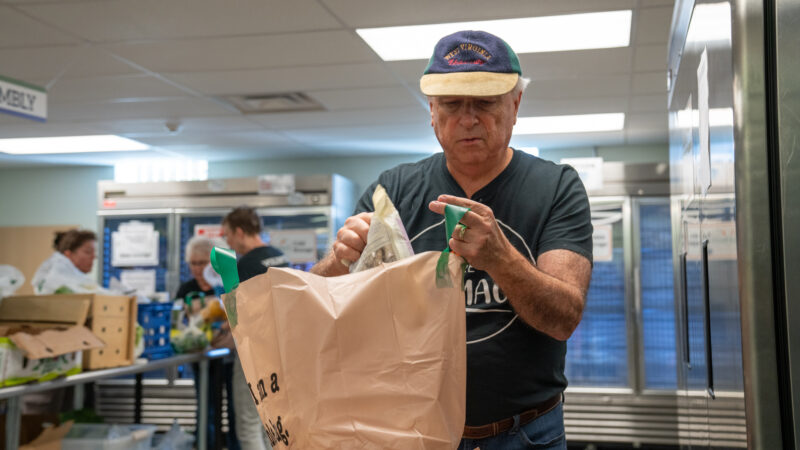
“We get emotionally attached to some of the people who participate,” said Pasquarella, who has volunteered with LCS for more than two years. “I smile a lot each Monday.”
In our series Food as Medicine, we follow how ChristianaCare is making food a prescription in a healthy lifestyle.
Click here for Part 1: ‘It’s Not Just About Food–It’s About Friendship.’
Click here for Part 3: Erica’s Story: Fresh Takes on Healthy Eating Mean Fresh Starts for More People.
In a partnership called Food Farmacy, ChristianaCare and Lutheran Community Services provide weekly grocery deliveries, along with one-on-one support from a community health worker.
The early results are certainly worth smiling about. Among the 150 graduates so far, Delaware Food Farmacy participants have reported lower A1C blood glucose levels, healthier blood pressure readings and lower body mass index, said Michelle Axe, MS, CHES, program manager of Food and Social Care Initiatives for ChristianaCare.
“We’re offering participants an opportunity to make a change in their life, not only for them as individuals, but for the entire family,” Axe said.
Bringing the food chain full circle
Scott Schuster, RD, LDN, works with Delaware farmers to coordinate their delivery schedules and tackle administrative burdens.
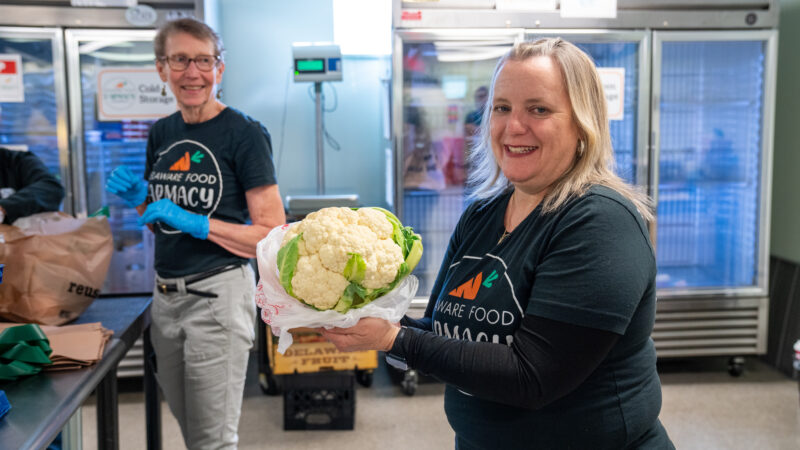
“Small- and medium-sized farms typically don’t have the resources to deliver, market and promote their products. In creating this network, we are trying to bring everyone together as a group to allow for these larger market opportunities and better economic impact,” said Schuster, coordinator of the Farm-to-School program through state Department of Agriculture.
“Patients are getting local produce that is typically picked within 24 to 48 hours.”
Healthy food, happy hearts
The Centers for Disease Control and Prevention estimated in 2023 that food insecurity results in nearly $77 billion in excess health care spending. Studies have shown that evidence-based, tailored food interventions — such as Delaware Food Farmacy and Maryland Hungry Harvest — can lead to improved health outcomes and better use of health care services among participants while also reducing food insecurity.
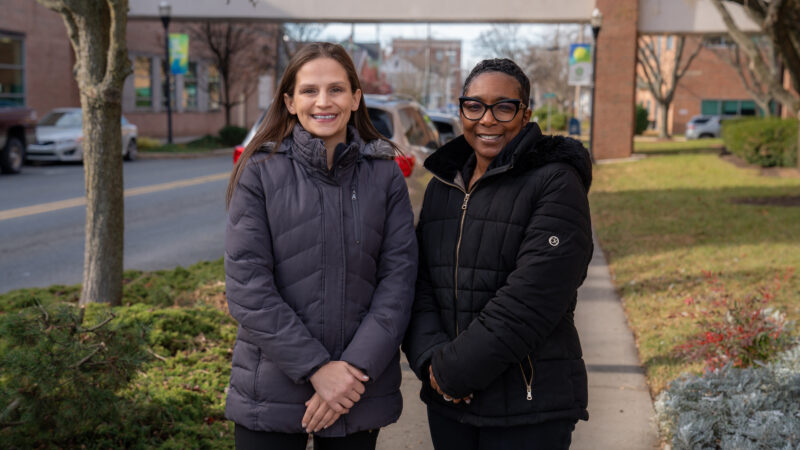
In Maryland, ChristianaCare has partnered with Hungry Harvest, a healthy online grocer that works with farmers to promote healthy eating and avoid food waste. ChristianaCare registered dietitians make sure the items for selection follow the Dietary Approach to Stop Hypertension (DASH) diet, focused on fresh produce, lean meats and fish, whole grains and low-fat dairy.
Delaware Food Farmacy and Maryland Hungry Harvest operate on the Food Is Medicine model, which recognizes that nutritious foods are essential for good health – and they must be accessible in the community, particularly in under-resourced areas.
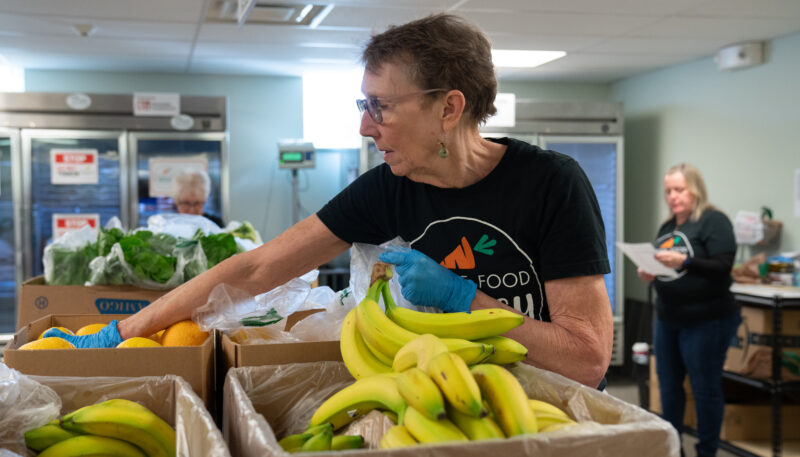
To build this bridge in Cecil County, Maryland, two patient care coordinators work with Medicare-eligible patients diagnosed with hypertension and diabetes, scheduling their annual wellness visits and connecting them with the Hungry Harvest program, said Lisa Fields, manager of Community Engagement. Baseline vitals are collected and participants have access to equipment for self-monitoring.
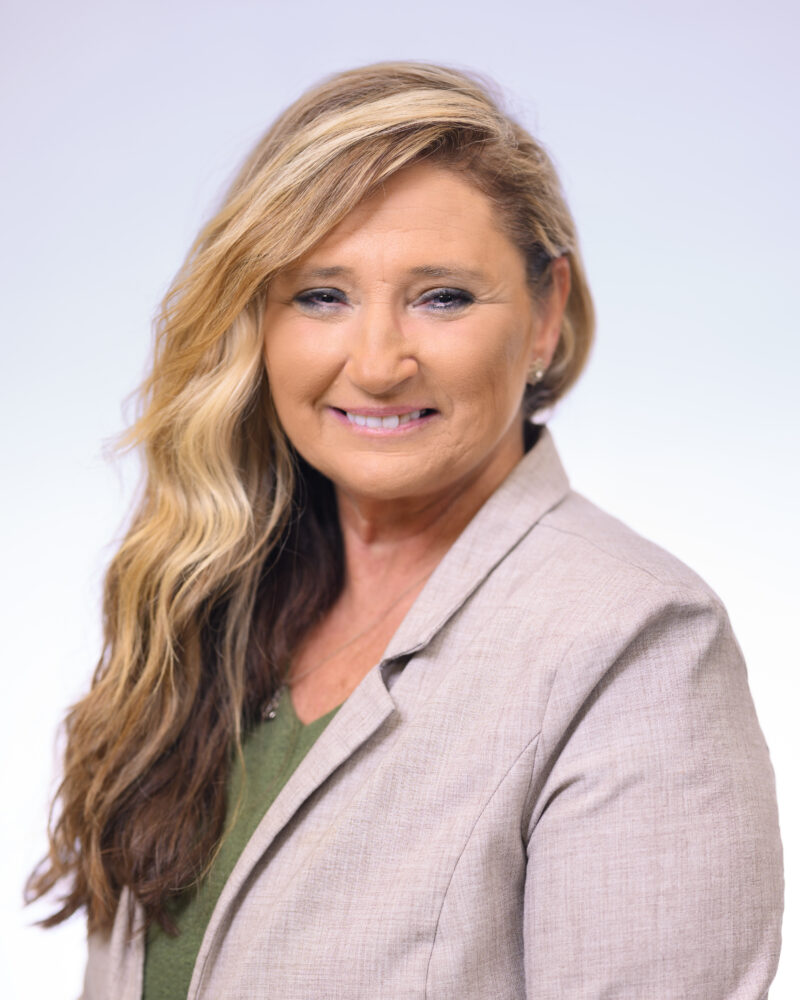
“One of our goals to really reducing disparities is helping people who don’t have that access to essentials like technology, transportation or in this case, food,” Fields said. “These issues are related to health, whether it’s chronic disease or food insecurity or emotional health.”
Food intervention programs strive to make the connection between the intake of food and its direct impact on health.
“With this population, they don’t have the money to purchase healthy foods. And they don’t know always know what’s healthy. It’s good that we have that guidance where we can go and say, ‘Well, this is healthy for you,’” said Bethany Coyle, a patient care coordinator who works at ChristianaCare Primary Care at Elkton. “It takes that burden of grocery shopping and lessens it for them.”
Although the program began in September 2023, preliminary results suggest the program is resonating with its target audience.
“It’s not just about Hungry Harvest. It’s about building relationships,” said Shiree Smith, a patient care coordinator at Primary Care at Elkton.
“Sometimes, they just need somebody to talk to. Five minutes on the phone will make their day.”
